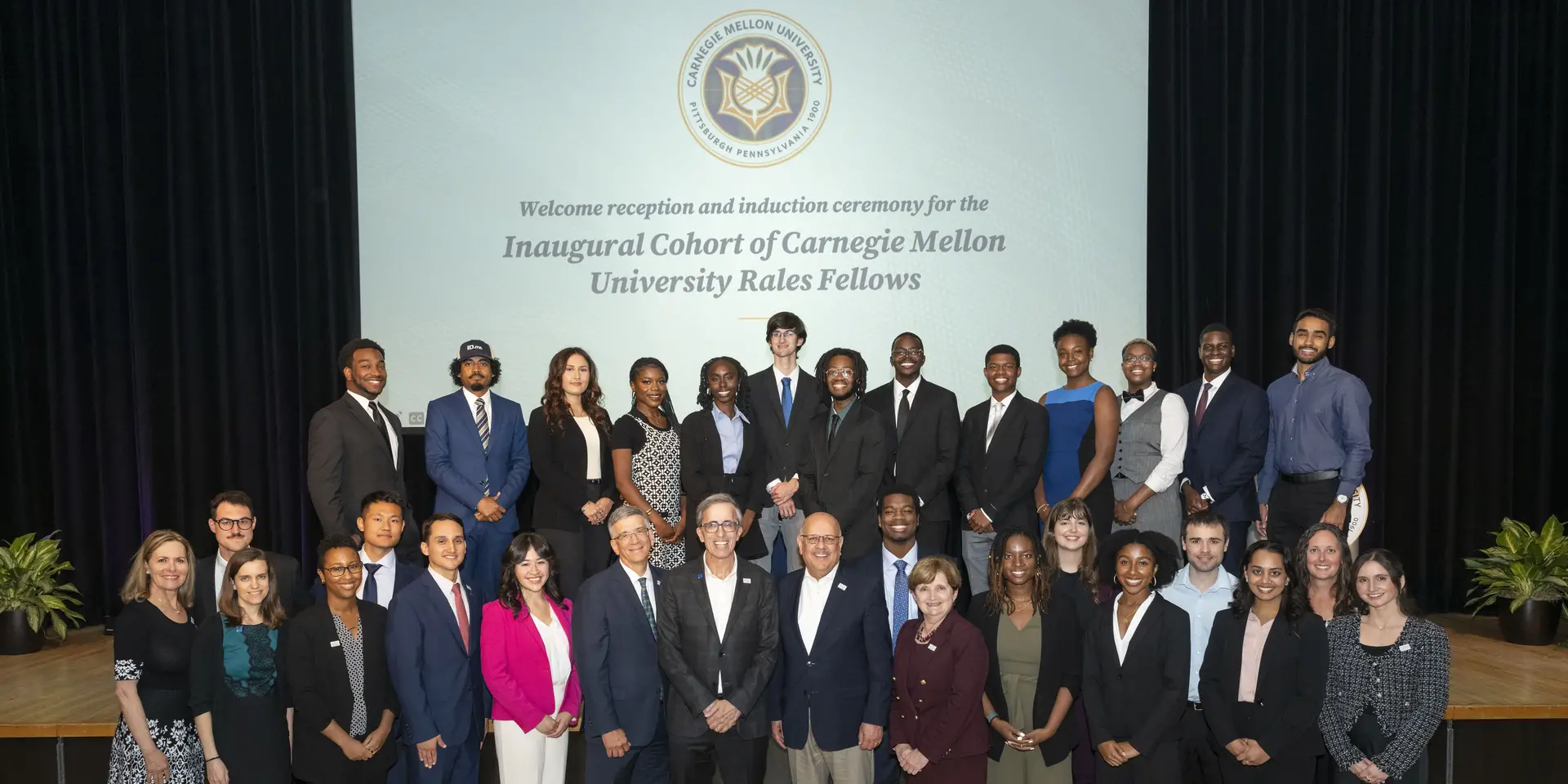Cultivating the next generation of STEM leaders
There is a critical shortfall in students pursuing STEM degrees in the United States, which can impact economic growth and innovation. Carnegie Mellon and the Norman and Ruth Rales Foundation have partnered to address that problem with the Rales Fellows Program, which offers a deep level of support and access to CMU STEM graduate programs as well as community and professional networking opportunities.
Established in 2023 with a $150 million partnership between the university and the foundation, the fellowships broaden access to STEM graduate education through fully-funded fellowships and generous stipends, wraparound support and professional development resources.
CMU welcomed its first cohort of fellows in 2024. The 2024 cohort comprises 22 fellows pursuing graduate degrees, and represents a total of 17 states, 18 undergraduate institutions and 17 academic programs.

The Rales Foundation was established in 1986 by the late Ruth Abramson Rales, who was raised in Pittsburgh after her parents fled Eastern Europe, and the late Norman Rales, a New Yorker who grew up in Hebrew Orphan Asylum in upper Manhattan. The couple started the Rales Foundation to provide children and families facing challenging circumstances with transformative opportunities to realize life's potential through enhanced education, health and social services. And when the foundation’s leadership wanted to establish a program to help remove barriers to a STEM education, they selected Carnegie Mellon as the institution the foundation would work with.
“Our parents, Norman and Ruth, were passionate about creating opportunities through which others would thrive,” said Joshua B. Rales, president and trustee of the Rales Foundation, when the fellowship was announced. “We are thrilled to continue that vision through the CMU Rales Fellows Program, which will help the most talented candidates enter the upper reaches of STEM fields and introduce more diversity of thinking and experience, which will further drive innovation in the sciences.”